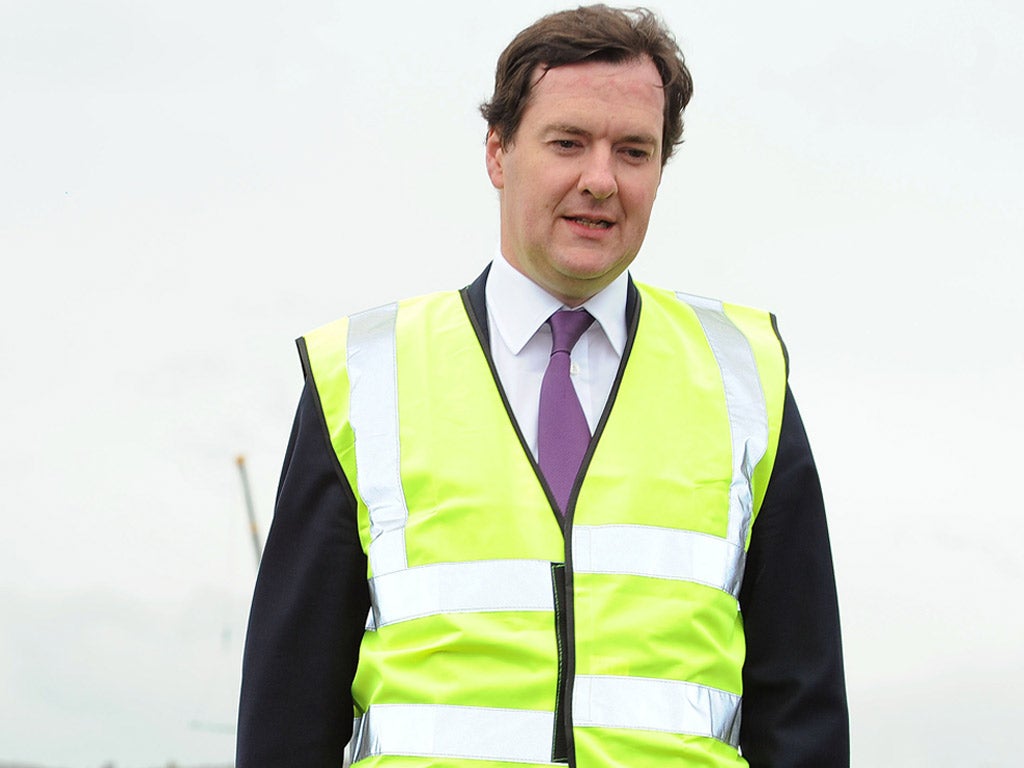Steve Richards: PM shows he has no ability to think outside the box
Reshuffles rarely change the fate of a government. Cameron's first does not challenge the pattern


From a position of fragility David Cameron has made a number of unavoidably limited moves. As far as they will make any great difference at all they are likely to cause as many problems as they solve.
Cameron has an unpopular Chancellor who he will never sack. By making Ken Clarke his Minister without Portfolio Cameron hopes to secure the best of both worlds, keeping George Osborne at the Treasury while having "good old Ken" to put the case for economic policy more regularly on the media, a clever change. The "minister without portfolio" remit in the often dysfunctional Cabinet Office is not a brief or location to make much impact on policy, but Clarke remains an attractively ebullient performer and we will be seeing or hearing more of him in the coming months and even less of Osborne.
This does not make the Chancellor less powerful. Close to Cameron and based in the Treasury, Osborne, not Clarke, will continue to shape economic policy. But along with Clarke's role the new chairman, Grant Shapps, who in a minor way has a Blair-like ability to appear calm, reasonable and conversational in media appearances, reinforces a fresh focus on presentation – a key consideration.
Elsewhere thorny issues were evidently on Cameron's mind. In removing Clarke from his role as Justice Secretary, Cameron hopes to reassure the restive right-wing of the parliamentary party by promoting Chris Grayling to the post. Andrew Lansley has got his sweeping overhaul of the NHS reforms through parliament. The more emollient and less transparently ideological Jeremy Hunt is assigned the task of implementation.
Whether his emollient attitude to News International as Culture Secretary will undermine his authority in this even more sensitive brief becomes a political question of some importance. Hunt faces a very big challenge to prevent the NHS becoming a totemic issue at the election.
On another contentious front a new Transport Secretary with no obvious hang- ups about a new runway at Heathrow clears one obstacle for such a move to be considered.
But new thorns can quickly replace the old ones. Clarke is an attractive performer who can also be an astutely candid one when he feels the need to be. Further moves to the right from an administration already firmly rooted on that part of the political spectrum might prompt the occasional and carefully timed barbed comment.
Even when he was the main media performer and a successful Chancellor under John Major he could not prevent an unpopular government from heading towards calamitous electoral defeat. A new hardliner as Justice Secretary might ignite fresh tensions with the Liberal Democrats who supported Clarke's evidence-based approach to policy making.
A new Transport Secretary with no significant interest in transport is not necessarily a positive development. Cameron has appointed a new Environment Secretary who is seen as a "climate change-sceptic", making his pre-election slogan "Vote Blue. Go Green" seem even more cynical and inauthentic.
There is also more generally the clichéd problem about reshuffles. Some Conservative MPs will conclude that their time will never come and that from now on their contribution to public life is to act with principled conviction, always a dangerous resolution as far as Prime Ministers are concerned and especially in a hung parliament.
Reshuffles rarely change the fate of a government. The first since Cameron came to power does not challenge the pattern.
In terms of the economy and public service reform the hazardous course was set in the Coalition's early days and the consequences will be played out in the second half of this parliament. Unusually for what was billed as an extensive reshuffle all the senior figures are still in place. Most Prime Ministers move at least a Home Secretary every now and again, and sometimes a Chancellor. Cameron has not. More widely the economy is in its second recession.
Fragility, ideological inclination and friendship limited Cameron's options before the reshuffle. Afterwards, the friends, ideological inclination and fragility are still in place.
Join our commenting forum
Join thought-provoking conversations, follow other Independent readers and see their replies
Comments
Bookmark popover
Removed from bookmarks